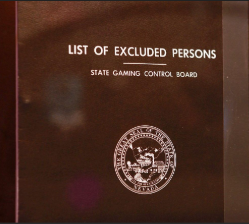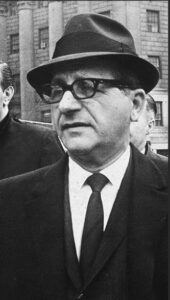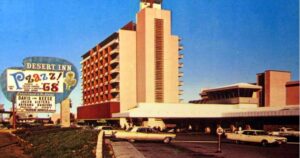William Gallagher: A Brief and Controversial Legacy in Nevada’s Gaming History
The Nevada Gaming Control Board (NGCB) was established to ensure the integrity of Nevada’s gaming industry, safeguarding the public interest through licensing, regulation, and enforcement. It was a vital component of the state’s efforts to legitimize gambling as a respectable industry. Yet, beneath its polished exterior, darker forces often shaped its operations. Few individuals embodied the perilous clash between integrity and corruption like William Gallagher, whose brief tenure on the NGCB in late 1959 left an indelible mark.
The Mission of the NGCB
The NGCB’s responsibilities are manifold: issuing gaming licenses, monitoring establishments for compliance, investigating applicants, enforcing laws, collecting taxes, and ensuring fair play. On paper, the NGCB is a bulwark against illegal activities, organized crime, and unethical practices. Yet, the institution’s credibility has often been scrutinized, with whispers of favoritism and undue influence casting shadows over its mission.
In the late 1950s, as Nevada’s gaming industry blossomed, it became increasingly clear that elements of organized crime had infiltrated the glittering casinos of Las Vegas. The state needed a strong hand to root out corruption and enforce the law. Enter William Gallagher, a man whose uncompromising ethics and determination made him a threat to the status quo.
Gallagher’s Crusade
William Gallagher joined the Nevada Gaming Control Board with a mission to restore integrity to an industry rife with underhanded dealings. A former lawman with a reputation for incorruptibility, Gallagher’s appointment was seen by some as a bold move to clean up Nevada’s casinos. For others—particularly those with vested interests in maintaining the status quo—his arrival was an unwelcome disruption.

Gallagher’s short time on the NGCB was marked by his relentless pursuit of transparency and accountability. He initiated rigorous investigations into the backgrounds of casino operators, scrutinizing their connections and finances. His efforts culminated in the creation of the now-infamous “Black Book,” a list of individuals deemed so toxic to the industry’s integrity that their mere presence on a casino floor could jeopardize a license. Among the eleven names in the original Black Book were notorious mobsters like Marshall Caifano, Carl “Cork” Civella, and Sam Giancana.

For Gallagher, the Black Book was just the beginning. He envisioned a comprehensive purge of unsavory elements from Nevada’s gaming industry. But his crusade soon made him powerful enemies.
The Desert Inn Incident
In late 1959, Gallagher’s steadfast commitment to his principles came to a head during a fateful evening at the Desert Inn. Invited to dinner by Morris Kleinman, a former Cleveland bootlegger and a key figure in the casino’s operations, Gallagher was subjected to an unsubtle attempt at bribery. Kleinman, after hosting Gallagher with lavish food and wine, escorted him to the casino floor, where he produced a roll of bills—estimated by Gallagher to be at least $5,000.
The proposition was clear: Gallagher would play the tables, enjoy a conveniently “lucky” streak, and leave with a sizable sum. It was a common tactic, designed to ensnare officials in a web of subtle corruption. Gallagher, however, refused to play. His refusal was more than a personal statement; it was a direct challenge to the entrenched powers of the gaming industry.

The Fall from Grace
Shortly after the Desert Inn incident, Gallagher’s tenure on the NGCB came to an abrupt end. Official explanations were vague, but the timing left little doubt that his dismissal was the result of his refusal to compromise his principles. With Gallagher removed, the momentum behind the Black Book initiative stalled. Though the list was officially published in 1960, its impact was muted, and the NGCB’s resolve to enforce its provisions waned.
Gallagher’s departure marked the end of a brief, tumultuous chapter in the history of Nevada’s gaming industry. Stripped of his position and influence, he retreated to a modest life, opening a liquor store in a run-down part of Las Vegas. The store, “Sports Liquor,” was a far cry from the glittering casinos he once sought to regulate. Over the next three years, it was robbed four times—a bitter irony for a man who had dedicated himself to upholding the law.
Legacy and Shadows
William Gallagher’s story is a cautionary tale about the perils of integrity in a world dominated by money and power. His brief tenure on the Nevada Gaming Control Board serves as a stark reminder of the challenges faced by those who dare to challenge entrenched systems of corruption. While the Black Book remains a symbol of the state’s efforts to clean up its gaming industry, its origins are rooted in the determination of one man who refused to look the other way.
Gallagher’s fall from grace also underscores the fragility of reform in the face of systemic resistance. Though his name is rarely mentioned in discussions of Nevada’s gaming history, his legacy lingers in the shadows—a testament to the cost of standing up for what is right in a world where the stakes are always high.
A Creation of C.F. Marciano – The Boss Behind the Pen.


